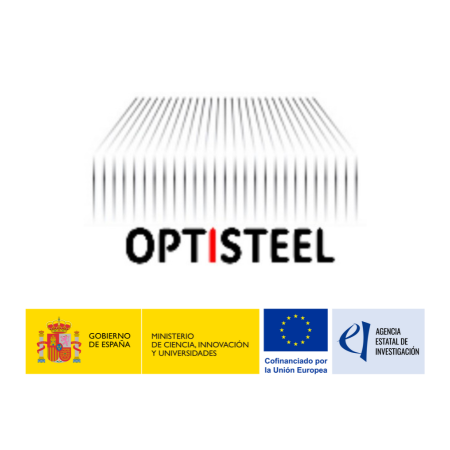- Start: 01/10/2024
- End: 30/09/2027
Steel is a critical material for all sectors of industry and construction. However, its production involves intensive energy consumption, which translates into a high environmental impact. Likewise, the European steel industry, in this post-COVID-19 stage, continues to face important market challenges derived from high inflation and the energy crisis. In this context, this sector must concentrate efforts towards improving resilience and competitiveness, aimed at greater flexibility, efficiency in the use of resources and energy, reduction of emissions and improvement in health and safety conditions in the work environment.
As a fundamental part of the technological and environmental transformation, digitalization is postulated as a key tool in production processes, not only increasing efficiency by enabling advanced control strategies, but also facilitating better and faster decision-making throughout the entire value chain. The application of integrated production technologies and intelligent production processes based on the implementation of CPPS (cyber-physical production systems), IoT (internet of things) and AI (artificial intelligence) offers the opportunity to create improvements not only in safety, flexibility and reliability of production processes, but also in product quality and the reduction of emissions and environmental impact. However, steel production processes pose enormous challenges for the development and implementation of monitoring and sensor solutions that allow the collection of reliable data of required quality in extreme environments (extremely high temperatures, high irradiative heat, EM interference, vibrations., oxidizing/reducing atmosphere, presence of gases and smoke...) and that can operate continuously with safe maintenance conditions and tolerance to failure.
The combination of multispectral monitoring technologies with online and real-time gas composition analysis systems would enable the implementation of control models and strategies to optimize production parameters for different steel qualities. Another pillar of technological development towards decarbonization in sectors with high energy demand in Europe involves the development and implementation of electrification solutions that replace, to the greatest extent possible, the consumption of natural gas and other fossil fuels in key points of production processes.
In the steel manufacturing process, the rolling process requires a reheating stage in a furnace at high temperatures (>1200ºC) in which preheating by induction would present enormous environmental advantages. However, the effects on the final quality of different steel products are still unknown, which requires further advances in research.
The OPTISTEEL project develops and implements non-invasive monitoring solutions in the reheating furnace of the steel rolling process, to monitor the surface temperature of the billets and the atmosphere of the furnace, as well as the composition of the gases inside it. This real-time monitoring allows the prediction of the temperature profile inside the billets through the development of advanced models, and therefore enables the optimization of the conditions inside the oven, thus avoiding the formation of skeins, optimizing the subsequent rolling process and improving the quality of the final product. Likewise, the effect that the implementation of an inductive preheating stage would have on the quality of the different steels will be studied, in a pre-industrial stage.
- Sectors: Civil engineering
- Financing programme: Proyectos de colaboración público-privada 2023
- R&D&i: Artificial intelligence, Circular Economy, Integrated monitoring and control systems, Materials under extreme conditions, Sensoric solutions
- Leader: Global Steel Wire (GSW)
- Partners: AIMEN Centro Tecnológico, CEIT, ABB, Steeldevelop
- Acronym: OPTISTEEL
- Ambit: National
